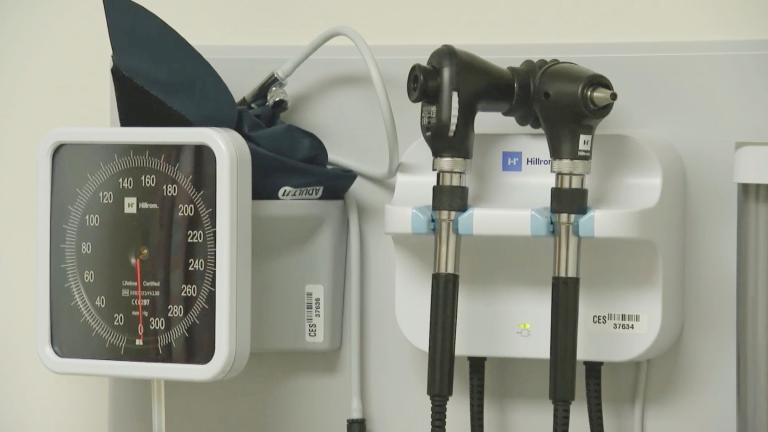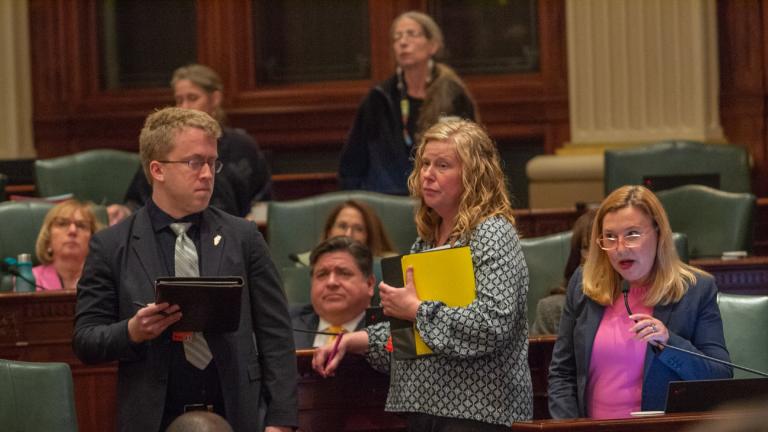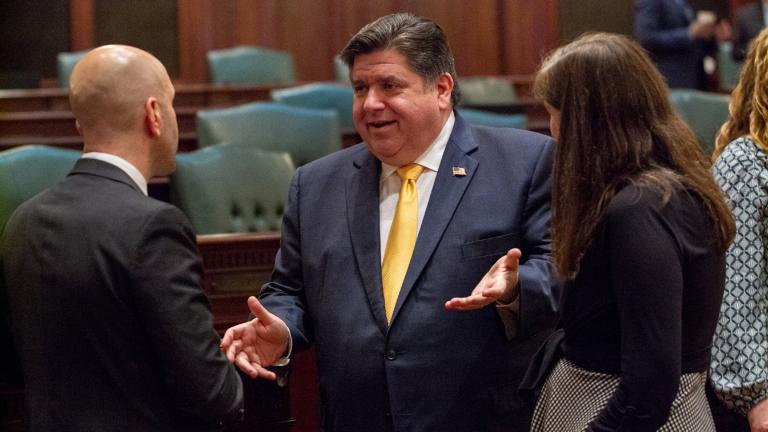The U.S. Supreme Court is preparing to reverse Roe v. Wade, the decision in place since the early ‘70s that has protected abortion rights.
The draft opinion leaked to Politico and confirmed by the chief justice as genuine calls the Roe decision “egregiously wrong” and would return “the issue of abortion to the people’s elected representatives” – meaning to Congress and to the states.
Abortion rights activists and Democrats who control Illinois government had anticipated this day was coming and passed measures in preparation.
“No matter what atrocious opinion the Supreme Court officially rolls out this summer in regards to Roe v. Wade, abortion is safe and legal in Illinois,” Gov. J.B. Pritzker said.
Among the measures Pritzker says Illinois had the foresight to pass — was one he penned into law early in his term.
While 13 states have trigger laws that would automatically ban abortions if Roe’s overturned, Illinois law does the opposite.
The 2019 Reproductive Health Act enshrines in law individuals’ rights to make autonomous decisions about their reproductive health, including birth control and abortions.
About six months ago, Pritzker repealed a law that required minors’ parents to be notified before they could have an abortion.
“Illinois continues to show the nation what it looks like to empower women so we can be parents on our own time if and when we choose to do so,” state Rep. Sonya Harper, D-Chicago, said. “We put over the counter birth control at our pharmacies. We put pads and tampons at all our community colleges and universities. We put privacy protections in place for our most vulnerable young people dealing with some of the hardest decisions of our lives.”
Reinstating the parental notification requirement is among the actions State Rep. Adam Niemerg, who represents a rural area in southeastern Illinois, wants taken.
Niemerg said he will work to repeal Illinois’ Reproductive Health Act and to ban abortions outright.
“In Illinois it would be a very difficult process and that is something that folks here in Illinois need to understand. That until the legislature is solidly Republican, that until the governor’s office is solidly Republican, these pro-choice measures will stay in place,” he said. “And I do believe that through time we’ll be able to chip away at the radical abortion legislation that has been passed in the past two years, and I do think that the people of Illinois understand and agree with that.”
Measures restricting abortions have stalled in Illinois in recent years, such as one (HB3049) Niemerg is sponsoring, that would require ultrasounds be offered to anyone seeking an abortion, eight weeks into pregnancy and beyond.
“There is statistical analysis out there that says 80% of women that are shown their child, shown the ultrasound, decide life, decide to choose life. Because they see that child developing and understand it is a human being, that that child needs to be given that opportunity for life. So once they’ve been given the opportunity to see the ultrasound, it can change hearts and minds when it comes to whether or not they decide to go through with an abortion, whether or not they decide to have the child.”
Niemerg said anticipated Supreme Court ruling should be a call to action to voters, and while change won’t happen in Illinois overnight, he and other advocates are in it for the long haul.
Democrats likewise are galvanizing their voters, with Pritzker at a news conference Tuesday saying there is no “assurance Illinois will always be a pro-choice state.”
“If the wrong people are elected to office if people who are against women’s rights get elected to office, if the legislature turns Republican or the governorship turns Republican, we will end up being an anti-choice state,” Pritzker said.
Congress could also pass a national prohibition on abortions, though at present there aren’t enough votes.
Abortion is not strictly a partisan issue; handfuls of Democrats voted against the repeal of the Parental Notification Act, and Pritzker’s predecessor, Republican Gov. Bruce Rauner, signed a law (Public Act 100-0548) that expanded access to abortions by requiring state health insurance and Medicaid to cover them. A group of Democratic lawmakers stood together Tuesday to denounce the Supreme Court’s vote, and to vow to do more to protect and increase access to abortions.
“We saw the warnings, here in Illinois we’ve done a lot of the work,” State Rep. Kelly Cassidy, D-Chicago, said. “Our responsibility – and I challenge each and every one of you to get as creative as we can – is to think about what else our force field needs. What else do the women and pregnant people coming from other states that restrict abortion need when they come to us? We’ve got a bill (HB1464) sitting in the Senate to protect health care workers from adverse actions from other states. Are we going to look to ways to ensure that the parents in Alabama or Texas who want to access gender affirming care for their trans kid know that they’re welcome here?”
Democrats say next steps include ensuring that Illinois will be a haven to those from neighboring states like Kentucky and Missouri where abortions will be banned post-Roe.
“We have the responsibility locally to coordinate lifesaving mutual aid that includes abortion funds, transportation and enacts radical hospitality for anyone living and traveling to Illinois who needs access to a safe abortion,” said Sen. Cristina Pacione-Zayas, D-Chicago.
As other states have recently blocked access to abortions, Illinois has already seen an increase of people coming here to have the procedure.
Follow Amanda Vinicky on Twitter: @AmandaVinicky








